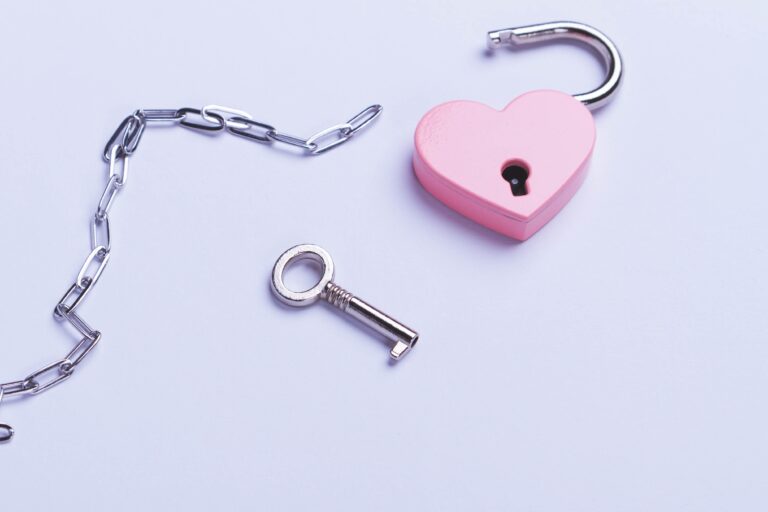If You Want to Better Understand Women, Read This.
Why men don’t understand them, and ways they still can.

Men have joked about not understanding women for a long time. When I talk to my fellow women about this, we laugh, because our point of view is that we’re very easy to understand. Maybe the simple truths lie somewhere in between, but there is research that answers questions about gender differences and what women want in romantic relationships, and most people are probably able to guess what a few of them are.
As most men know, women don’t usually have difficulty telling men what they want and need, so is there a communication gap between the genders? Are we from different worlds? Are the things women asking of their men too much, or are men simply unable to give a woman what she asks for emotionally? Do we have thought processes that are so different from one another that women should never expect to get what they really want and need?
I’m about to tell men what they need to know to understand women, but my question is, once you know what it is, are you up to the task? A lot of women will tell you that we don’t think we ask for a lot, but I’m hoping men will tell me what they think. If we ask too much, what are you able to do that is listed below? I’ve spoken to enough men to know that most have good intentions for their relationships, but women will tell you few are consistent with following through. Guys, please help us understand where it all falls to pieces.
It’s no accident that erotica for women is found in grocery store romance novels and books like, Nicholas Spark’s, The Notebook. Mention this to any female friend and they will nod their head vigorously. In each story, the male lead passionately loves his woman and demonstrates it repeatedly over time in all sorts of extreme scenarios. No matter what calamities fall in the story, the male hero never waivers. He will fight a dragon, swim seven seas, climbs mountains, all to protect or return to the woman he loves.
In a romance novel you won’t see the heroine begging her man to put down his phone and come talk to her. She doesn’t need to, because his focus is on her and doing things that make her feel happy and desired. We know this is pure fantasy, but can’t men take the indirect messages of all that and understand that what turns a woman on in literature, literally turns a woman on?
The research.
John Gottman, a professor emeritus of psychology, is a respected Marriage and Family Therapy researcher who has studied thousands of men and women in his Love Lab at the University of Washington in Seattle. He has provided most of the research on men and women in relationships, what makes a great marriage, and what predicts divorce. People like me use his stats daily when working with clients.
In his book, The Man’s Guide to Women, Gottman says the number one thing most women want and need in relationships is trustworthiness, which also involves reliability, consistency, and accountability. [1]These needs hail back to prehistoric days when the most desirable cave man reliably provided sustenance and protection for his family. It’s in women’s DNA that having a lifelong help mate she can count on helps ensure her and her children’s survival. To get the woman to want to move into his cave, however, cave man had to woo her. The problem was, once the cave man’s seed was planted and a child was on the way, he returned his focus to hunting and gathering and stopped wooing. Women will tell you that their experiences today mirror that. From a woman’s perspective, men can be seductive on the front end of a relationship, when chemicals are surging, but once they land their quarry, it’s back to work. The result? Like cave woman, a lot of women feel duped. Gottman doesn’t talk much about wooing specifically, but my girlfriends and the women I see in therapy do. So, yes, a woman must know you will be there for her, that’s a crucial foundation for everything else, but she also needs more than that.
Underneath the heading of trustworthiness are things men can do to boost their trustworthiness score, says Gottman. He uses the acronym, A-TT-U-N-E to describe them.
A. Attend. Giving a woman your undivided attention. Women need quality time when things like tablets, phones and television are turned off, so that she and her love may give one another their undivided focused attention. Focused attention is the best way to give someone yourself, and I see it as a deep and precious thing. I can hear my female friends adding to this, “And not have it always lead to sex.” Yes, sometimes we want to be close emotionally and physically without it leading to sexual interest.
TT. Turn towards a woman. Most women complain about wanting and not getting intimacy. For women, most intimate acts are not in the bedroom. Turning towards a person represents eye contact, physical orientation, and face-to-face conversations. One of my girlfriends said says she’s afraid to look her husband in the eyes when they’re home because he’ll think it means she desires him. It doesn’t. Once again, women need closeness without the male getting any inappropriate intimacy ideas beyond that. When connecting and focusing in the ways described here, men should probably let the woman take the lead if she wants it to lead to more.
U. Understand. Undivided attention is great, but women need what they are saying to be understood. When you’re conversing, asking her questions, and digging deeper into what she is talking about is a tried-and-true way to show her that you’re interested in her and she’s important to you. If you agree with what she’s saying, tell her. Don’t try to fix or give unsolicited advice. (You already knew that, didn’t you?)
N. Non-defensive listening. Oh, it’s hard to do this one, but since Gottman’s research shows that defensiveness is one of four predictors of divorce, along with criticism, contempt, and stonewalling (silent treatment), it had to be on the list. If she says something that fires up your nervous system and sends you into fight, flight, or freeze response, ask for a timeout to calm down. Whatever you do, do not throw a tit-for-tat or what about-ism response, or your hard work of being trustworthy will go out the window. Just be quiet, calm, and give her an adult response.
E. Empathize. If she’s feeling a certain kind of way — upset, sad, afraid, angry, and you’re not relating to how she feels, ask her questions, and seek to understand it. Asking women questions is always great idea when it’s for the purposes of understanding … never assume, just dig deeper until you comprehend what she’s thinking or feeling.
Men and women want different things.
In 2007 Georgetown University professor of linguistics Deborah Tannen wrote the bestselling book, You Just Don’t Understand, about the differences between women and men in conversations. In the field of interpersonal relations, she is one of the most respected scholars there is. In the book, she says it’s important to know that from moment one, most men and women are on different wavelengths, but we all knew that, right? It’s a cruel joke in many ways that men are a completely different animal, and even if we have similar backgrounds, we still have great difficulty meeting one another’s needs. Women, she says, engage in “rapport-talk,” a communication style meant to promote social affiliation and emotional connection, and focuses mainly on interpersonal issues, while men engage in “report-talk,” seeking information with little emotional support. [2] Women seek connection and relationships, men seek status and independence. It probably makes sense, then, that if most women seek connection, and most men seek independence, that there will be conflicting goals that collide.
In my own experiences, my husband comes home from playing golf with his friends and I ask him what they talked about, and he says, “Nothing interesting,” then he proceeds to tell me how much money he won or lost, usually in the $15 dollar range. I believe him about no interesting discussions. The men were not sharing details and struggles about their lives as women do, they were betting on who would win each hole. At the end of the evening when they divvy up the winnings, one person gains temporary status for taking the pot. When my girlfriends and I get together, it’s going to be a rowdy, laughing, good time, with lots of stories, tales, and information exchanged, with mutual support and caring. When I am alone and talking with my husband, I will be leading the conversation to get information about whatever topic might be on my mind, and I think that’s typical. Since he usually won’t just walk in the room and offer it up like a woman probably would, I’ll go on an excavation journey to dig information out. Women would love and appreciate if their mate would do that for them, at least occasionally. Showing an interest in your partner is a major act of love. It’s an intellectual phenomenon and life mystery that women and men are so different but are drawn to one another like moth to flame.
Tannen’s research also goes a long way describing why a lot of men aren’t running to order self-help relationship books for improving their relationships. Unfortunately for females, women by far are the ones who search the universe for that information. In my marriage therapy sessions, it’s almost always the woman who is trying to squeeze more relational juice out of the marriage, while many men seem to survive very well on connection fumes and regular sex. When you’re okay with fumes, then you’re probably not going to go out and buy Gottman or Tannen’s books to improve a romantic relationship. The female brain will forever push for more, of course, while the male brain seems to rarely focus on having higher quality human relationships. As my Relational Life Therapy mentor Terry Real says, the reason men should shift that stance is simple: Give a woman what she wants to get more of what you want. Even though we sometimes drive men crazy begging for more attention, love, and affection, heterosexual people will return to the opposite sex time and again, even though past experiences haven’t been great, because no one else can give you the feeling a romantic partner you care about can. If my husband’s golf buddies could give him that, who knows if he’d ever have wanted to have a woman around all the time.
It’s always been interesting to me that on Monday mornings husbands and male partners call to make an appointment for couple’s therapy. After a weekend argument, the female probably demanded they show that they care by looking for a therapist, calling them, and setting up an appointment. So, with an imaginary gun to their head, men will put the pedal to the metal, so to speak. They may even read a book if it’ll stop their mate from complaining. But the real reason to do any of these things is not to get a complainer off your back, the proper spirit is to truly want to make your partner feel loved and appreciated on a daily basis.
What I have seen men willing to do is to read Gary Chapman’s The Five Love Languages, which expands on Real’s concept that you give more to your relationship to get more yourself. It’s true that if you hit the target regularly on the one to five categories that make your partner feel loved, [3] (See note below) and they do the same for you, the gas tank of love you started with in the beginning of your relationship will probably stay full. Ignore these things, and it empties and disillusionment and resentment seep in. As I said, this is one of the things men will do, is to read that book, but it’s a rare man that takes the information to heart and applies it over the long haul. In his book, The New Rules of Marriage, Real says not staying on top of giving your partner what they need is no longer acceptable. He explicitly tells men, intelligent women of this era, most of them involved in careers themselves, demand emotional intimacy and meaningful friendship in addition to the traditional role of providing, and if you signed up for marriage and family, you are obligated to deliver. When I first read those words, I said to myself, “Thank you, Terry.”
I imagine that if men read this, some will say they aren’t like the men I describe here, and they are also wondering when I’m going to talk about what they want and need. I can hear, “Wait, what about us?” That’s important too, and most women want to give it to you, believe me. But there is little doubt that it is the male gender who drops the ball more than women do when it comes to keeping the romance alive. (Sex doesn’t always count as romance, by the way, wooing does.) There are always exceptions, of course some men do it all, bravo to those of you who do, but it’s not common. Until I write about what you guys want and need, the best thing for now is to focus on your mate. I’ll bet you a dozen donuts if you consistently do the things we’re talking about here, you will see her rise and begin to focus on you. Remember the old saying, you get out of something what you put into it?
I was going to start this blog off telling men, and women who love women, that what women want is to feel adored and special. They want to live in a world of connection. When we walk in the room, do you look up and greet us with a pleasant expression? Will you sit with us and our frustration when we’ve had a bad day? Do you make us a priority in your life? Will you be loyal and have our back, always on our side? Even though we’re from different worlds in many ways, can we find a common language of caring and support? Will you be a soft place to land? Through your body language, words, and touch, will you show us that your love for us is solid as a rock and you’re not going anywhere? At the end of the day women’s emotions are intertwined with how much they feel loved and adored.
Dr. Gottman and Dr. Tannen explain a lot about what women need and the fundamental differences in genders. I’m not the first relationship therapist to try and find ways for completely different human beings to find ways to find their romantic relationship a continual source of pleasure. For two people to grow together and remain solid, romantic, while enhancing one another’s lives through the life span, it takes self-discipline and mindfulness. But it’s darn difficult when one gender is primarily focused on having that connection, while the other is not. Like Martin Luther King, I have a dream, and my dream is to see better relationships, and having that in the forefront of public awareness. Not just romantic ones, but with friends, family, co-workers, in the political arena, with everyone. Satisfying relationships make the struggle of life so much better, and relationships that don’t work tear us away from our purpose and enjoyment of life.
People can change, but most don’t change that much. Men and women speak different languages, what Deborah Tannen calls, (4)”Genderlect.” (p297) and perhaps the only way either gender will understand all this is to study the wiring and ways of the other. Men are wired to protect women, for example, even though most women don’t want or need to be protected. An example is, a man may have a life struggle, a health issue, or be worrying about something, and he chooses not to share with the woman. When she finds out later, she is hurt and accuses him of not treating her like a partner. The husband, Dr. Tannen says, was protecting his wife from information that might stress her out, but she wanted the intimacy of knowing what’s going on in his life, and to be there for him. This is a typical example of how two good, well-meaning people fail to connect because of their basic gender wiring.
If men reading this think women want too much, just remember that to have a life-long connection you must be intentional and do the work. The simple fact is work means time and focus. Work is all the things Dr. Gottman and Gary Chapman describe in their books. As a woman who has many of the same concerns my female clients have, I think it’s important to know that we women are probably not going to get everything we want, so we must ascertain what is enough. I had a client not too long ago, married for decades, say she wants it all or nothing at all. Her husband says it’s hard to give it to her because she is demanding and critical. I get it. Women play an important role in being the type of mate a man wants to focus on and desire. We must be soft and welcoming. Heading into the final chapter of her life, my client wants to see what’s possible, or go it alone. Lifelong romantic commitment isn’t for everyone, and I always say marriage is for adults, and perhaps should happen less often. I hope both genders will do their homework and decide if it’s right for them.
[1] Gottman, J., Gottman, J. S., Abrams, D., Abrams, R. C., & Hardin, L. L. (2018, May 1). The Man’s Guide to Women: Scientifically Proven Secrets from the Love Lab about What Women Really Want.
[2] Tannen, D. (2007, February 6). You Just Don’t Understand: Women and Men in Conversation. William Morrow Paperbacks. https://doi.org/10.1604/9780060959623
[3] Chapman, G. D. (2010). The five love languages. Walker Large Print.
Note: The five ways to show your love for your partner are 1. Physical touch, 2. Words of affirmation, 3. Quality time, 4. Acts of service, 5. Gifts. A person may only have one, two or all five. With each one, though, a couple needs to talk about what it means to them. The idea is, even if touch is not your forte, for example, you still have to do it.
Becky Whetstone, Ph.D. is a licensed Marriage & Family Therapist in Arkansas and Texas*, and is known as America’s Marriage Crisis Manager® . She has worked with thousands of couples to save their marriages. A former features writer and columnist for the San Antonio Express-News, she is also co-host of the Call Your Mother relationship show on You Tube, and has a private practice in Little Rock, Arkansas, and as a life coach via telethealth. To contact her check out www.DoctorBecky.com and www.MarriageCrisisManager.com. Don’t forget to follow her on Medium so you don’t miss a thing!
*For licensure verification find Becky Whetstone Cheairs.





